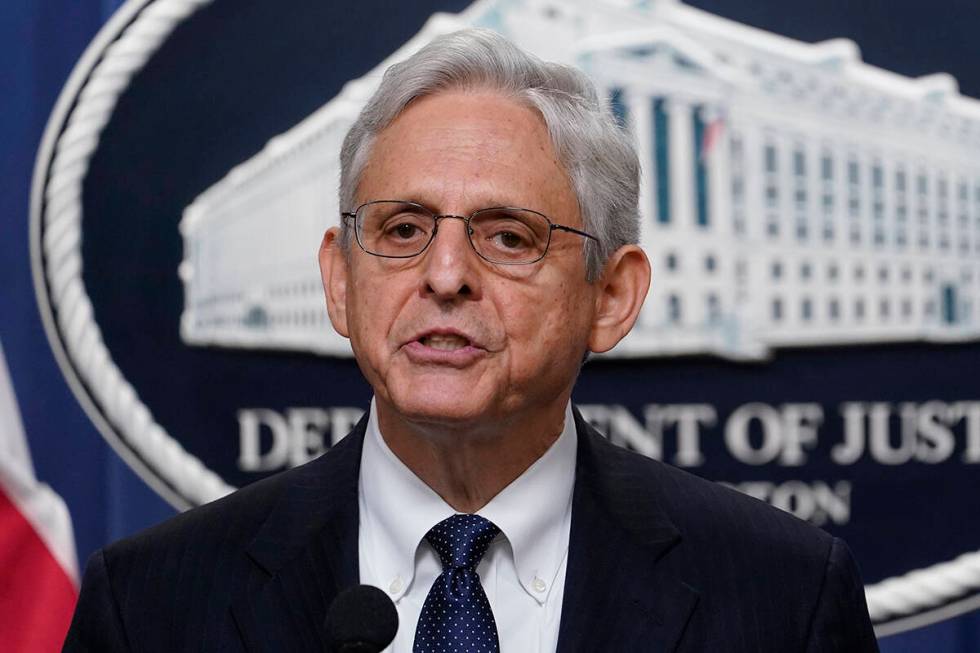Justice Department moves to unseal Trump records warrant

WASHINGTON — The Department of Justice is moving to unseal the search warrant and the itemized receipt of what was taken from former President Donald Trump’s Mar-a-Lago residence this week, Attorney General Merrick Garland said Thursday, his first public comments since the FBI search took place.
It is extraordinarily unusual for the Justice Department to comment on an ongoing investigation, especially one involving such a high-profile person. Garland did not take questions from reporters. The motion to unseal the warrant was filed as Garland spoke. A judge must rule before the warrant can be unsealed.
“The department filed the motion to make public the warrant and receipt in light of the former president’s public confirmation of the search, the surrounding circumstances and the substantial public interest in this matter,” Garland said.
The FBI did not disclose the daylong search of Trump’s Florida estate. Trump announced it had occurred in a statement, referring to the court-sanctioned search as a “raid.”
For days, Republicans have decried the search as a “witch hunt” and demanded more information about why a warrant was necessary to reclaim documents that Trump did not hand over to the National Archives upon leaving office in January 2021.
Far-right agitators and commentators have threatened FBI agents, Department of Justice officials and the judge who signed the warrant, and online forums have surged with calls for violence. On Thursday, a man wearing body armor exchanged gunfire with law enforcement officers and attempted to breach the FBI field office in Cincinnati, Ohio, though it is not yet clear whether it was in response to Monday’s search.
The National Archives announced in February that it had recovered 15 boxes of material from Mar-a-Lago — including documents that had been damaged and some that were labeled classified or top secret — and was asking the Department of Justice to determine if criminal charges were warranted. Under the Presidential Records Act of 1978, such records belong to the public and must be turned over to the National Archives and Records Administration when a president leaves office. The act gives broad discretion in determining what records are personal and what are presidential records.
The New York Times reported Thursday morning that Trump received a subpoena this spring for classified documents that federal investigators believed he had failed to turn over earlier in the year. Multiple news outlets have reported that Trump’s lawyers met with Justice Department officials in June to discuss what confidential records the former president still had in his possession.
The New York Times also reported that Justice officials believed that the information being withheld was related to national security and so sensitive that it had to act.
“I personally approved the decision to seek a search warrant in this matter,” Garland said Thursday. “The department does not take such a decision lightly.”
Details of what records the FBI sought and obtained through the court-approved search warrant are not yet clear, but the itemized receipt should provide some details. Trump’s lawyers have a copy of the warrant and list of the removed items, but have not made it public.
Trump’s lawyers and several prominent Republicans have said — without providing evidence to back up the claim — that they believe the FBI planted information in the boxes it removed.
In his brief remarks, Garland said he had to respond to the “unfounded attacks on the professionalism” of the department.
“I will not stand by silently when their integrity is unfairly attacked. The men and women of the FBI and the Justice Department are dedicated, patriotic public servants.”